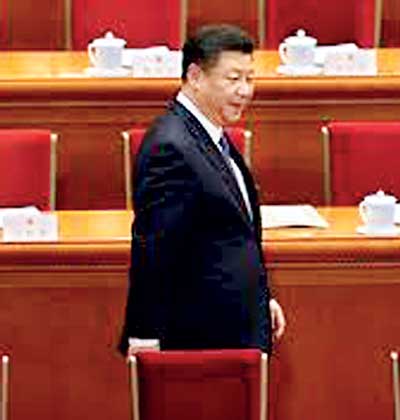Thursday Feb 19, 2026
Thursday Feb 19, 2026
Tuesday, 20 March 2018 00:00 - - {{hitsCtrl.values.hits}}
BUENOS AIRES (Reuters): The US Treasury’s top economic diplomat said on Sunday that China’s move away from market liberalisation was an increasing concern for world economies as currency stability meant that exchange rate issues needed less attention in the G20 and other international forums.
David Malpass, Undersecretary for International Affairs, told an Institute of International Finance conference that what he called an increasing amount of state control over China’s economy, coupled with the end of term limits for President Xi Jinping, was “worrisome to the world.”
“We see that in the G20 process and the G7 process, and recognising that having such a big economy in the world move away from markets has not been good for us and the world and will continue to cause difficulty,” Malpass said at the IIF conference in Buenos Aires that coincides with a G20 finance ministers and central bank governors meeting on Monday and Tuesday.
“Our invitation is for the world to recognise this and also for China to recognise this commercially and move toward freedom and market orientation,” he added.
A US Treasury official said last week that the United States would try to garner support at the G20 meeting to push back state subsidies and other economic policies.
Malpass also criticised China’s investment rules that restrict access for foreign firms, saying this “makes it very hard for the world to invest in China” in ways that are compatible with the investor country’s laws.
“This is completely an unworkable and non-reciprocal arrangement,” he said.
However, Malpass did not specifically mention the Trump administration’s “Section 301” investigation into China’s intellectual property practices, including investment policies that effectively require technology transfers to Chinese joint venture partners. The Trump administration is considering hefty tariffs and US investment restrictions to try to force changes in these policies.